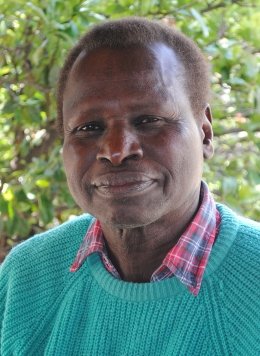A. Core Courses: Majors must complete the CGS 010 PZ – Introduction to CGS, CGS 050 PZ – Power and Social Change, and CGS 060 PZ – Interdisciplinary Knowledge & Global Justice, normally during their first two years before participating in an approved study abroad program. Majors must also complete a Social Justice Practicum course and an Indigenous Studies course, normally before taking the CGS 190 PZ – Senior Seminar. This major requires at least one course introducing an intersectional analysis of three or more of the following vectors of oppression: race, class, gender, sexual orientation, and citizenship/nationality. The CGS 190 PZ – Senior Seminar is required of all majors (except as noted below). A senior thesis or senior project is an option for all students, but it is required of all honors candidates (see below). Courses for the major should be chosen in consultation with a CGS adviser.
- CGS 010 PZ – Introduction to CGS
- CGS 050 PZ – Power and Social Change
- CGS 060 PZ – Interdisciplinary Knowledge & Global Justice
- CGS 190 PZ – Senior Seminar
- One Social Justice Practicum course chosen in consultation with a CGS adviser. Courses that satisfy this requirement may be chosen in one of the following ways:
a) One Social Responsibility Praxis or other internship-based course where the student works with a community-based social change organization;
OR
b) One course completed during a study abroad program or as a Study Abroad ISP that includes work for a community-based social change organization.
- One course in Indigenous Studies such as:
- ANTH 012 PZ
- ANTH 127 SC
- ANTH 160 PZ
- ARHI 135 PZ
- GWS 162 PO
- HIST 146 SC
- CGS 085 PZ
- CGS 125 PZ
- CGS 160 PZ
- 'CGS 075 PZ
- SPAN 139 SC
Other courses may satisfy this requirement when chosen in consultation with a CGS adviser.
Advanced Coursework, Topical or Regional Emphasis
Students will choose either one topic or one particular geographic region for emphasis in their CGS coursework. The topical areas that students may choose include: Indigenous Studies; the Third World/Global South; or Global Studies. Particular geographic regions that students may choose include: Africa, Asia, Europe, Latin America and the Caribbean, or the Middle East.
Normally, students choose a topical or regional emphasis that is relevant to their study abroad location. Three courses are required as a minimum for study of their selected topic or region, normally with one introductory course and two other courses at the advanced level (generally numbered above 100). Students are required to take one appropriate course before the study abroad semester, chosen in consultation with their adviser. Students are also required to take CGS 060 PZ as part of their preparation for study abroad.
B. Language
To satisfy the language requirement, any of the following methods may be used:
C. Study Abroad
Students are expected to participate in a semester-long study abroad program that is relevant to their chosen regional emphasis. Students should consult both with the Director of International Programs to choose an appropriate program and with their advisers to select courses that will prepare them for this experience. It is required that students planning to study in a particular study abroad program take CGS 060 PZ and a regional course designed to prepare them for study in that region. The regional course may fulfill one of the regional emphasis courses described below. Students returning from study abroad programs are recommended to take POST 194B PZ – International Studies Teaching Workshop [1⁄2 course].
D. Advanced Coursework, Regional Emphasis
Students will choose one particular region for emphasis from among the following list of regions: Africa, Asia, Europe, Latin America and the Caribbean, the Middle East, the Third World, or Global Studies. Normally, students choose a regional emphasis that includes their study abroad location. Three courses are required as a minimum for study of their selected region, normally with one introductory course and two other courses at the advanced level (generally numbered above 100). Students are required to take one appropriate course before the study abroad semester, chosen in consultation with their adviser. Students are also required to take CGS 060 PZ as part of their preparation for study abroad.
Honors:
Students with a cumulative and major GPA of 3.5 or higher may be considered for honors in International and Intercultural Studies. Honors candidates must write and successfully defend a senior thesis, generally while enrolled in CGS 199 PZ – Senior Thesis. The determination of honors is based on excellence in coursework in the major and the quality of the senior thesis.


